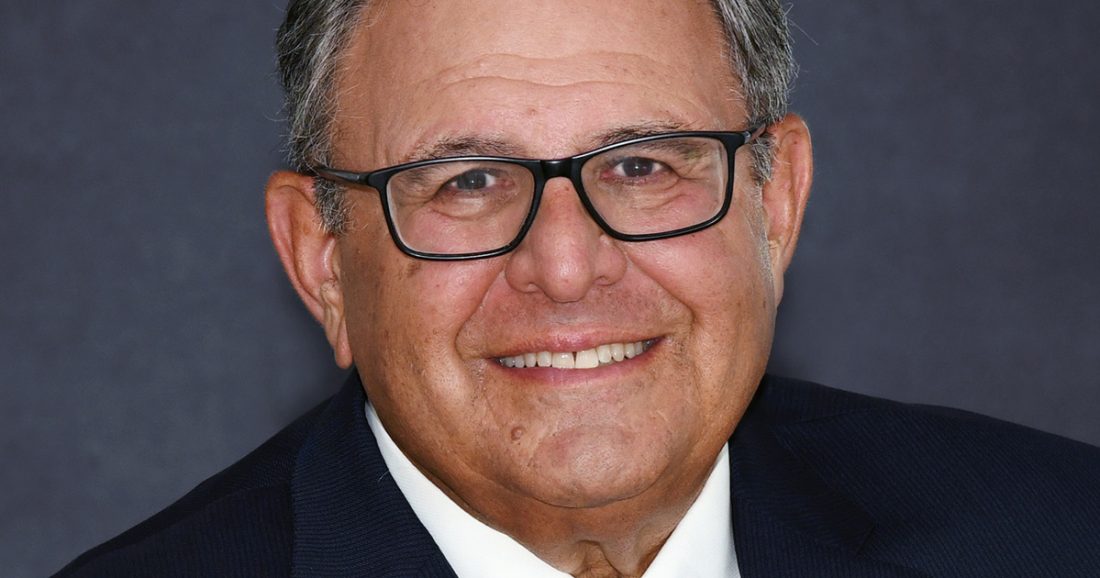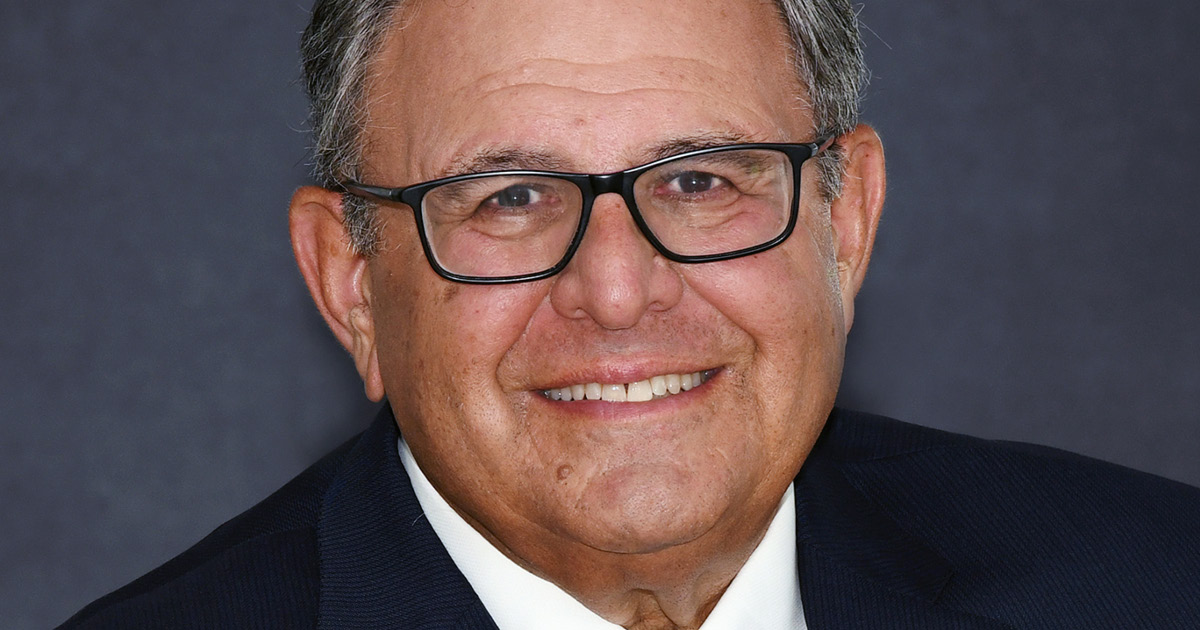If you’re one of the first people to pick up a copy of Stan Middleman’s new release biography, Seeing Around Corners: Achieving Success in Business and Life, when it is published on 17 September, you will enjoy a riveting rags to riches tale tracing his modest beginnings in Philadelphia to founding and growing one of the largest privately-held mortgage companies in the United States, as told in his own words.
Beyond his inspirational story, the pages overflow with lessons and advice to share with readers. None more so than how Middleman’s learnings were built on his failures.
“The book is something I wanted to work on for my family and friends so that they could better understand my journey and how I evolved across its course and the events that helped shape my opinions, philosophies and thoughts,” the President and CEO of Freedom Mortgage tells The CEO Magazine.
“It also charts the failures that, combined, led through to my successes and how my confidence was reinforced through achievement, but my learning was built on failure.”
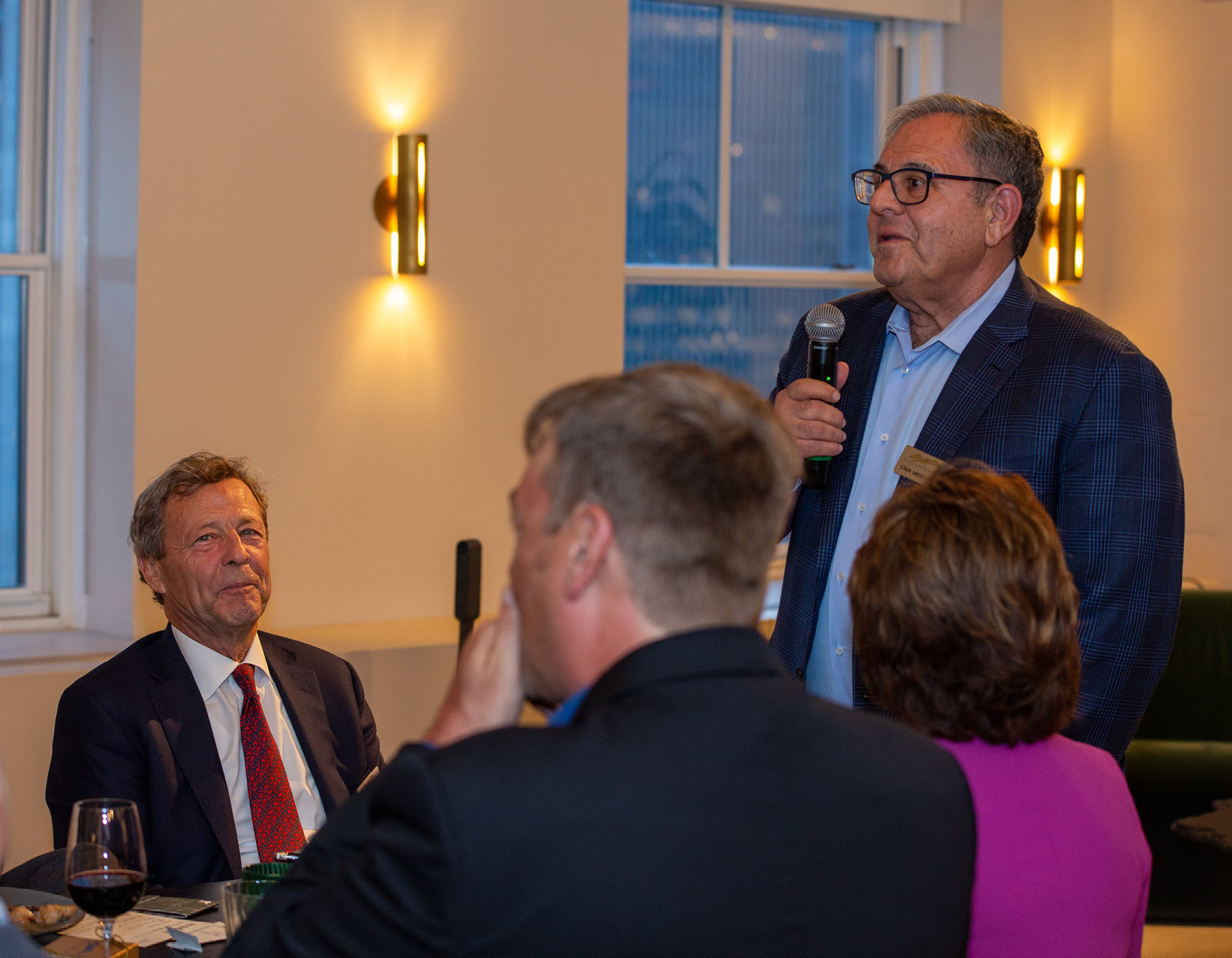
Middleman speaking at a team event with Simon Aldrich, Senior Executive Vice President, MSR Manager

For Middleman, that’s the crucial message to communicate across all 246 pages.
“As humans, we need to understand that we’re on a journey and that we can’t spend our time celebrating what we did last. Rather, we should be learning from it, so that we can be better at what we do next,” he says.
While Middleman quips that he doesn’t expect the author of his biography to win a Nobel Prize or a Pulitzer, he does hope that it is received as a symbol of optimism that you can fail – and that failure can drive success.
“I’ll let readers be the judge,” he laughs. “The message I’m trying to tell is that life is a journey. I want to make sure that my family and future generations appreciate my journey. That’s what really drove me to work on the book with Chris Whalen, the author, who brought my story to life.”
A simple dream
Without spoiling the plot, Middleman has quite the business tale to tell. He founded Freedom Mortgage in 1990, not long after graduating from Philadelphia’s Temple University. The vision was simple yet potent: helping Americans fulfill their homeownership dreams.
“Freedom Mortgage is a residential finance company that provides first mortgages for people that own their homes, whether they’re purchasing that home or whether they’ve been living in it already,” he explains.
“We provide the financing and collect the mortgage payments and handle whatever loss mitigation is appropriate for the investors.”

Advertisement
What has long set Freedom Mortgage apart in the market is a dedication to helping the underserved, particularly those who serve or have served in the military, through access to government-backed loan programs from agencies such as Fannie Mae, Freddie Mac and Ginnie Mae.
“We also do conventional financing,” he adds. “A large portion of our customer base is just regular folks who don’t need extraordinary financing on their homes and have good credit and steady jobs and income and are putting down 10 or 20 percent toward the purchase.”
Customers are based across the United States and the company now employs thousands of people across a national network with headquarters out of Boca Raton, Florida.
Correspondent growth
The past 12 months alone have been particularly memorable for the company. “Over the past year, we’ve done a lot of work laying the groundwork for the future,” Middleman explains.
In 2023, the company turned to the capital market and raised around US$1.3 billion. The financing was nearly three times oversubscribed, demonstrating just how strong investment sentiment is in its corporate growth strategy.
“We have used that liquidity to acquire assets,” Middleman explains.
Another striking statistic from the past year is the increase in Freedom Mortgage’s customer base: close to 2.5 million from a starting point of under two million.
“We grew our customer base in a short amount of time over the past year,” he enthuses. “That growth is significant.”
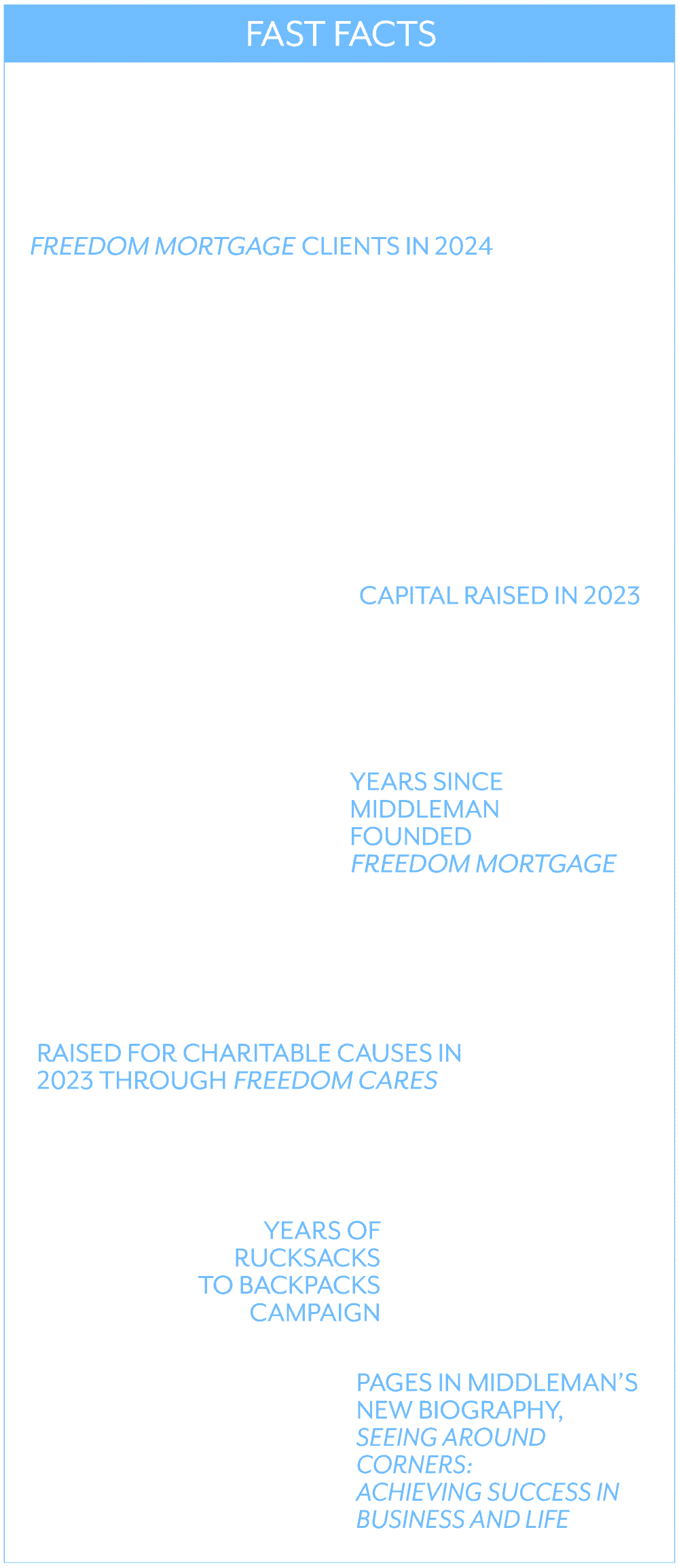
One of the tactics deployed to achieve such a figure has been the growth of correspondent lending, or mortgage loans that are originated, underwritten and funded by one lender before being sold to another.
“We’ve had a lot of success in the correspondent area to grow our customer base and add new customers,” Middleman explains, adding that the success has not been accidental. “It’s part of our strategic plan.”
The achievement is even more remarkable considering the impact high interest rates are having across the entire mortgage industry.
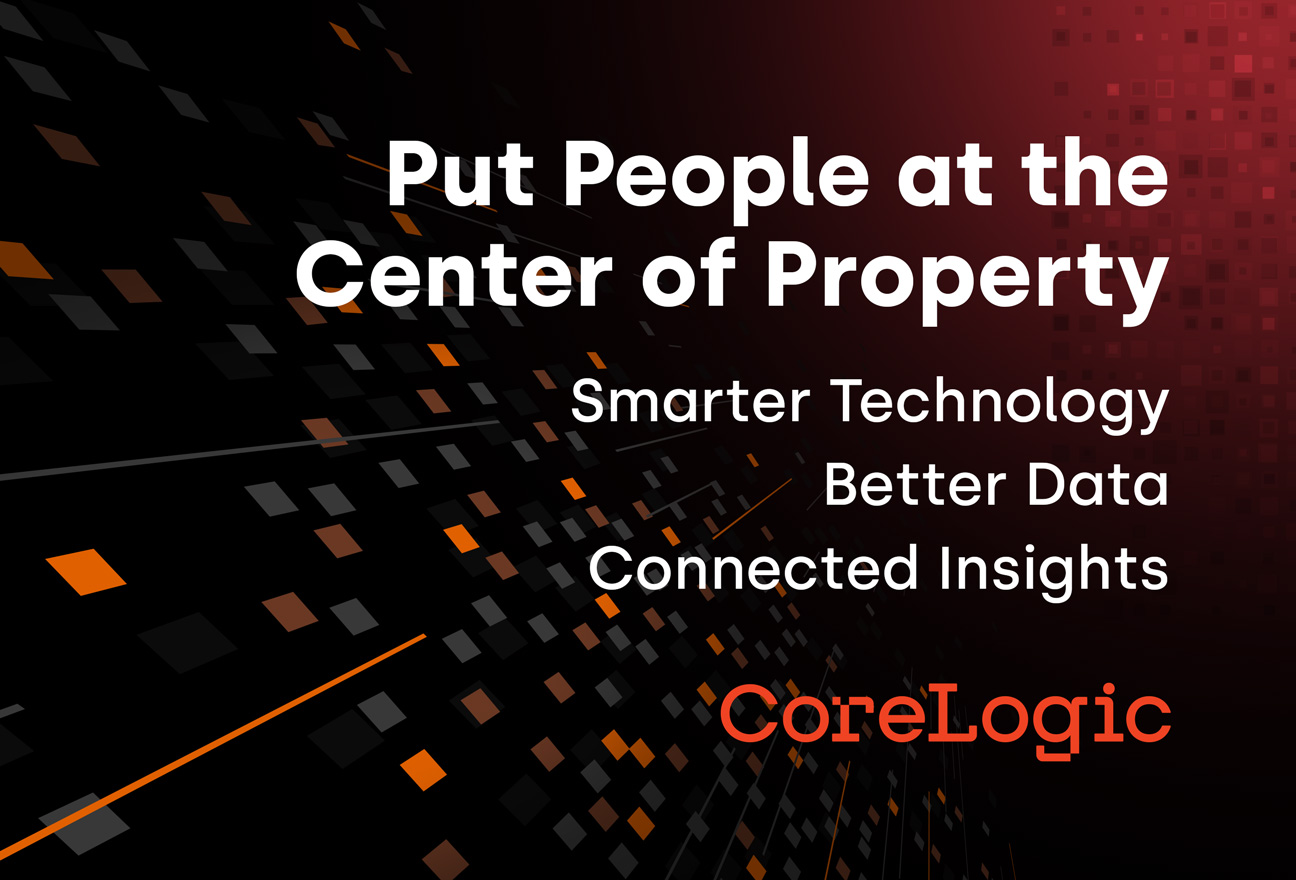
Advertisement
“Being able to achieve what we have in an industry-wide down-origination environment is remarkable,” Middleman acknowledges, giving particular praise to his son Greg, the company’s Executive Vice President, for his role in driving the activity.
“Our strategic decision to grow the size of our customer base was driven by an understanding that the quality of credit that has been created over the last five or so years is perhaps the best credit profile the mortgage industry has ever had. It’s a historical cyclical expression of exceptional consumer quality in terms of credit.”
The opportunity was there to tap into this chance – and Middleman and his team have fully grasped it.
Improving service while lowering costs
In alignment with one of the key learnings Middleman shares in his book, he cautions that such a period of success doesn’t translate into reflective celebration – and now is not the time for the business to rest on its laurels.
“I don’t look back, I look forward. We’re really trying to focus from an operating standpoint on being the low-cost provider and trying to improve our operational efficiency in terms of cost as well as service,” he says when discussing his current area of focus for the business.
Some companies might zoom into customer service at the cost of expense, he explains, but the ambition at Freedom Mortgage is to achieve both. “We want to be better at the customer service end and we want to do it at a lower cost.”
Fortunately, Freedom Mortgage isn’t starting out from a zero baseline.
“We’ve already been very successful at this – we’re certainly better than the middle of the pack,” he explains. “We’re one of the lowest-cost originators, if not the lowest. And we’re up there in terms of cost efficiency, servicing and investor reporting.”

Middleman giving the commencement speech at George Washington High School, his alma mater (June 2024)

Add into that the benefit of economies of scale, and Middleman knows Freedom Mortgage is on the fast track to achieve its aim.
“One of the biggest ways for us, like any business, to reduce our cost on a per customer basis is through economies of scale. The more customers you have and the less people you have to add to provide those customers with the appropriate level of service, the more profitable each of those customers become,” he reveals.
To accommodate the extra customers, the company hasn’t needed to install new systems, boost management or implement new accounting or legal tools.
“All those costs were absorbed by the growth in the size of the customer base. And those customers contributed the same revenues that the previous customers did, in fact, even more because the average loan size is larger. We’ve grown significantly and more efficiently merely through the economies of scale,” he points out.
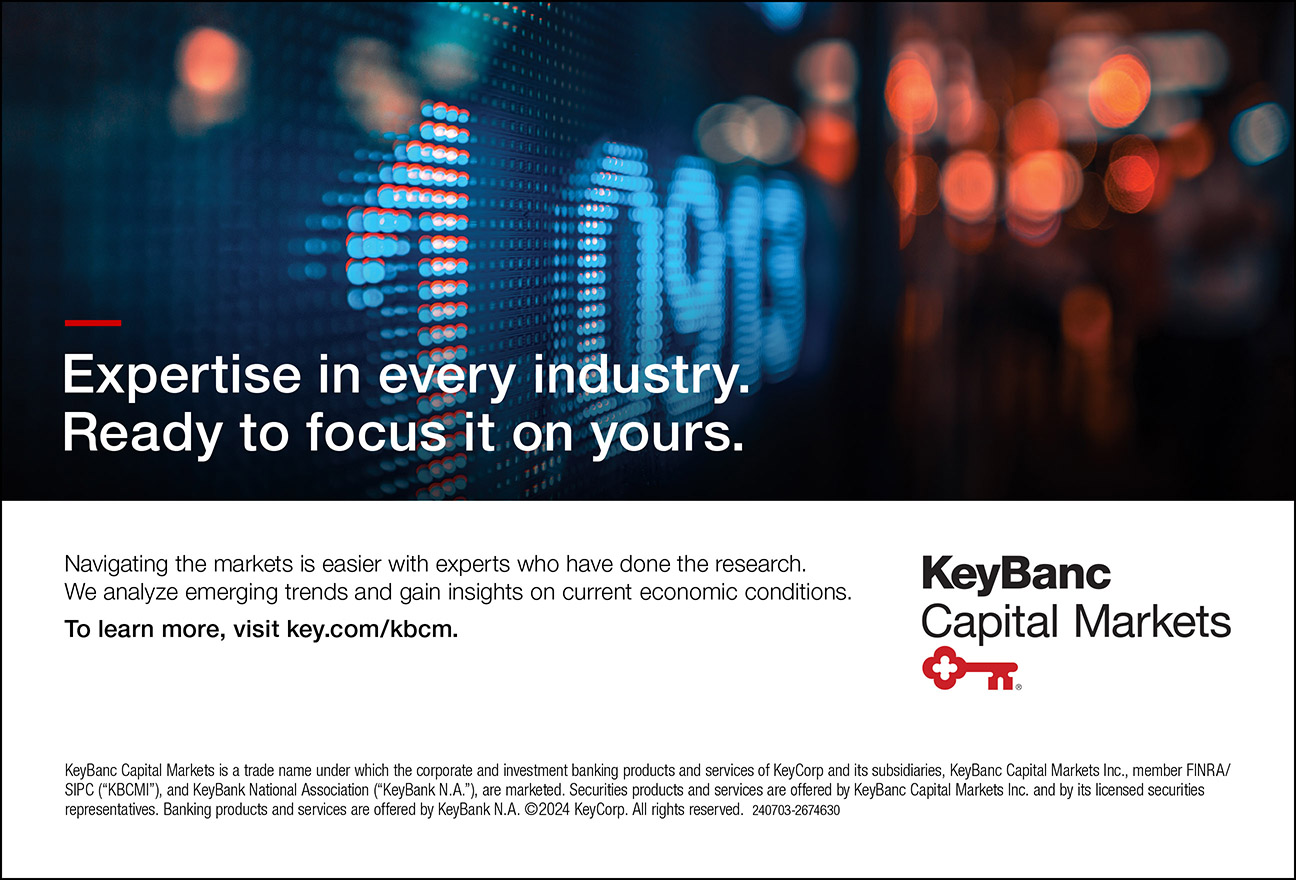
Advertisement
While it hasn’t had to roll out all-new systems, the company has invested in improvements across infrastructure, technology and people capabilities.
“We’ve improved our processes and our technology, upgraded our management and the oversight of that management, improved our capabilities in compliance and in regulatory conformity across the entire organization, but especially in servicing,” he says.
Another area that has also seen significant upgrades is its data and data analysis, a move that enables Freedom Mortgage to boost capabilities to understand all of its customers, according to Middleman.
“Particularly, accessing information about those customers empowers us to provide them better service and better success individually at the customer level in the future,” he says.
“It’s a really big opportunity that’s driven by process improvement and economies of scale. That’s been the big change that we’ve made and we’re enjoying the results of that.”
Freedom cares
While much emphasis is being placed on Freedom Mortgage’s future growth, Middleman is resolute in his ongoing commitment to doing good.
Its philanthropic arm, Freedom Cares, celebrated its 10th birthday last year with more than US$660,000 in donations and nearly 2,300 hours of employees volunteering in local communities in 2023 alone. The organization supports a number of worthwhile causes, with a particular focus on supporting those who serve or have served the nation.
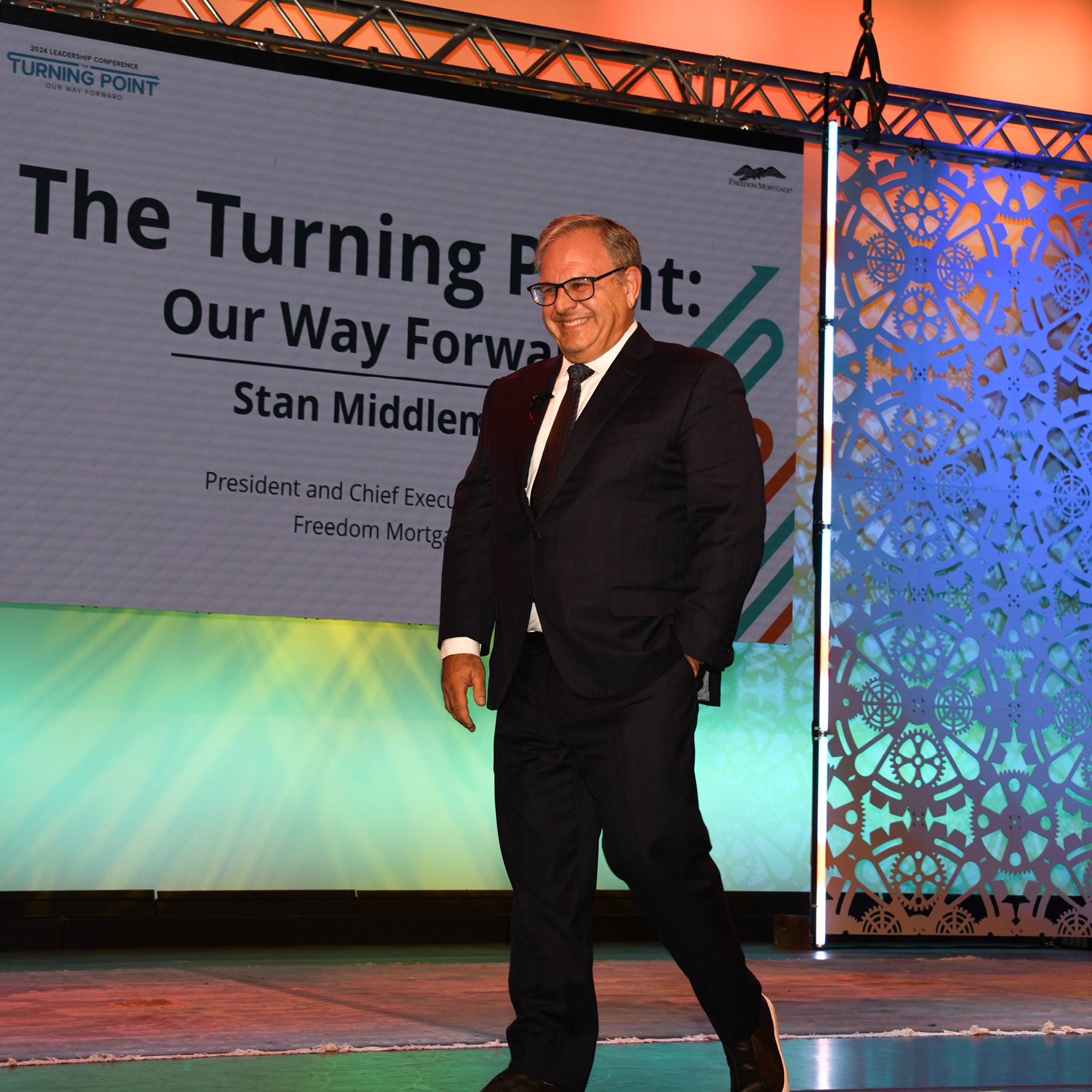
Middleman addresses senior and high performing leaders at Freedom Mortgage's Leadership Conference

Annually, Freedom Mortgage supports four main campaigns, which bring employees together to volunteer their time and/or make a monetary donation. Many of these campaigns support veterans and those in the military. A favorite is collecting handwritten notes and video messages of thanks to share with active-duty service members at the start of the year.
Fundraisers are held throughout the year to help provide meals for food insecure families through Feeding America, school supplies to children of service members through the USO, and holiday gifts for less fortunate children through Salvation Army and Toys for Tots. The company also supports other initiatives throughout the year.
Freedom Mortgage also reaffirmed its long-term commitment to the Mortgage Bankers Association’s Opens Doors Foundation in 2023, an organization that offers housing grants to families with critically ill or injured children who require assistance with mortgage or rental payments.
One of the initiatives closest to Middleman’s heart is the Rucksacks to Backpacks campaign, which raises money to purchase backpacks and school supplies for children of active-duty military, National Guard members and reservists. Last year marked the 11th year of the program and over US$100,000 was raised. At the time of writing this article, this year’s campaign is underway and Freedom Mortgage will once again distribute backpacks and essential school supplies at many USO Centers across the country.
Charity begins at home
Middleman explains that, for him, charity begins at home. “You need to be really focused on yourself before you can focus on others,” he insists.
A firm believer in creating a cumulative experience of success, he says a key part of that is your ability to communicate and share that success with others – to allow them to take advantage of your success.
“That gives you more confidence that you’re doing the right thing and you’re able to support people to gain confidence from your confidence,” he says. “That drives cumulative success and creates an outcome that’s manageable and measurable.”
Philanthropy, in his mind, works exactly the same way.
“Once I could afford to share with others, I would help them create accumulated successes through achievement. I have tried to focus on places where what I contributed filled the gap, and created the ability to build ongoing success and confidence,” he says.
Almost every philanthropic effort Middleman has made has been designed around this theory. “When I look at organizations that I can help, I like them to be in places where I can drive some level of influence, whether it’s economic or shared experience,” he says.
For Middleman, philanthropy is not about giving back. “It’s about going forward and looking at what that gift will do to create more opportunities for more people to have greater success, to live better lives,” he adds.
“I don’t have to make myself feel better by throwing money around. I want to be able to make a difference, and I want the world that I live in to be a better place. So hopefully the time and energy and money that I put into these different projects is valuable and has meaning. Our support is to give these projects the opportunity to be more self-sustaining and to grow on their own and to make a bigger difference in the field in which they’re operating.”
An unvarnished view
Along with his leadership commitments and philanthropic efforts at Freedom Mortgage, Middleman writes a blog for the company website and devotes time every week to committees and executives. Such is his respect in the industry that he and the company are the recipient of numerous awards and accolades; among the recent is earning a Top Workplaces USA Award, for the forth year in a row. Additionally, Freedom Mortgage is rated among the top 25 businesses for incorporating social and environmental impact alongside profits in the 2023 Real Leaders Impact Awards.
Perfect pairings
Speaking of partnerships, Middleman has a nuanced approach that has proved effective.
“You need to be empathetic with your strategic business partners yet not sympathetic,” he says. “You can appreciate their challenges, but you need to provide them a rock on which to stand, not soft soil to sink into.”
Some of Freedom Mortgage’s key partners include:
Converge: a leader in supply chain solutions that has helped Freedom Mortgage leverage the Amazon Cloud and streamline costs. Converge has also played a large role in assisting Freedom Mortgage in scaling its IBM workflow and automation for back-office processing, helping the company scale up and down as market conditions change.
Auction.com: the United States’ largest online real estate auction marketplace for distressed properties, works with Freedom Mortgage to facilitate the buying and selling of foreclosed properties. Auction.com’s innovative technology platform and expertise focus on buyer success.
Xome: a leading online real estate auction marketplace, supports Freedom Mortgage by conducting the foreclosure sale and post-foreclosure sale efforts, including marketing efforts in support of such sales.
KeyBank: a large regional bank based in Cleveland, Ohio that works with Freedom Mortgage in providing innovative financing solutions. KeyBank has been integral in supporting Freedom Mortgage’s servicing portfolio growth and allowing the flexibility necessary to adapt to changing economic environments.
Corelogic: a powerhouse in the residential mortgage industry that provides reliable solutions to tax and flood monitoring, data analytics and market insights. Corelogic’s partnership spans both the originations and servicing segments of Freedom Mortgage’s business, enabling a best in class, connective experience for every customer. Corelogic’s platform assists Freedom Mortgage in scaling efficiently through automation and technology integration and keeps Freedom Mortgage informed of emerging trends in the housing market.
Particularly close to his heart are the speaking engagements that enable him to open dialogue with younger generations.
“I’m able to talk to them and help them see the world and understand how important it is to recognize not only themselves, but those around them and how they fit into that environment,” he explains.
Saying he’d like to think of himself as someone who is widely read and fairly well-informed with a healthy curiosity, he explains that, of late, he’s found himself compelled to stress the need to appreciate different as different rather than better or worse.
“There seems to be a lack of capacity in our world to see different as different and many people see the term as good or bad,” he reflects.

At a Freedom Mortgage Rucksacks to Backpack distribution event on a military base. A Freedom Mortgage employee volunteers his time to help a young student find a new backpack so she’s ready to start the school year.

He argues that it’s an inappropriate approach for people to take.
“We’re only as good as the world we live in, and the world we live in has been extremely volatile and our lives are influenced by sound bites and media tidbits and information is designed to push our buttons. The more that you think in a certain way, the more that line of reasoning is reinforced through messages that come through your phone,” he explains.
“The things that you watch, read and hear tend to be influenced, and it’s forced our world to be more skewed rather than be better informed. The great hope of the internet was to create more evenly and responsibly spread information and I don’t see that is true. We have a divisiveness in our society that I find really unacceptable.”

Advertisement
Middleman uses his speaking engagements as a chance to encourage people to be more open to understanding the information gathered from non-biased or narrative driven sources, which, he acknowledges, is difficult.
“I’m spending time talking to industry groups to help them understand their business and offer them an unvarnished view of what is happening to them in the scope of the world that we live in,” he explains.
“Industry participants can become overwhelmed with their biases and how they want things to be, and then they take the information and put rose-colored glasses on and try to see it from a view that supports their hopes and dreams rather than their realities.
“I try to help those people stay grounded and see the world for what it is and give them a longer look.”
By the book
There are three key pieces of advice that Middleman shares in his biography, Seeing Around Corners: Achieving Success in Business and Life.
“The first is understanding the process. You need to understand that life is broken into parts,” he explains. “You have to accumulate skills, learn to perform tasks, teach those tasks to others, and create your own vision and use those task executing capabilities to achieve a plan or a vision, and then you can execute a strategy.”
The ability to take advantage of executing that process follows. “That begins with confidence. If you don’t have belief in yourself, no-one will have belief in you,” he says.
“You can build confidence in yourself through achievement and success – as well as through struggle and turmoil and failure. Those things can lead to a better self-understanding that gives you greater confidence to execute what you’ve learned.”
Finally, there’s the appreciation that whatever successes you have are cumulative and the more achievement you have, that begets success.
“Confidence begets achievement, achievement begets success, success begets confidence and you have a virtuous cycle. And the more confidence you have, the more successful you can become,” he adds.
“Because the more you’ll achieve the more you’ll believe in yourself and the comments you make will have more credibility if you say what you mean and do what you say.”
Middleman finds it incredible that, given the sensibilities of the mortgage industry to interest rate fluctuations and the difficulties to predict the future, that there aren’t more people who take the time to try and run scenarios. This would allow them to test the information they have at hand to develop a good working philosophy about what they expect will happen, rather than subject to what does happen.
“And that’s not a good way to run your business,” he says of the latter approach.
A robust ecosystem
It’s no surprise that Middleman believes preparation is core to what keeps Freedom Mortgage at the forefront of its dynamic sector.
“There are opportunities that emerge in every marketplace and you have to understand which ones fit you,” he says. “Sometimes, you have to take the time to take the time – and not rush through an open door. Because to weigh a decision to do nothing is still a decision, and to take time to position yourself to move forward after a period of aggressively moving forward is just as important.”
The role planning plays in weighing up the next steps cannot be understated.
“We go through a variety of exercises and cycles and dynamics shift around us, and I try to drill into our team that they’re not market makers, they’re market exploiters,” he notes.
“Their job is to understand the markets that they do business in and wait for the opportunities in those markets to emerge, or be able to understand which opportunities will emerge, and be prepared to move through them.”
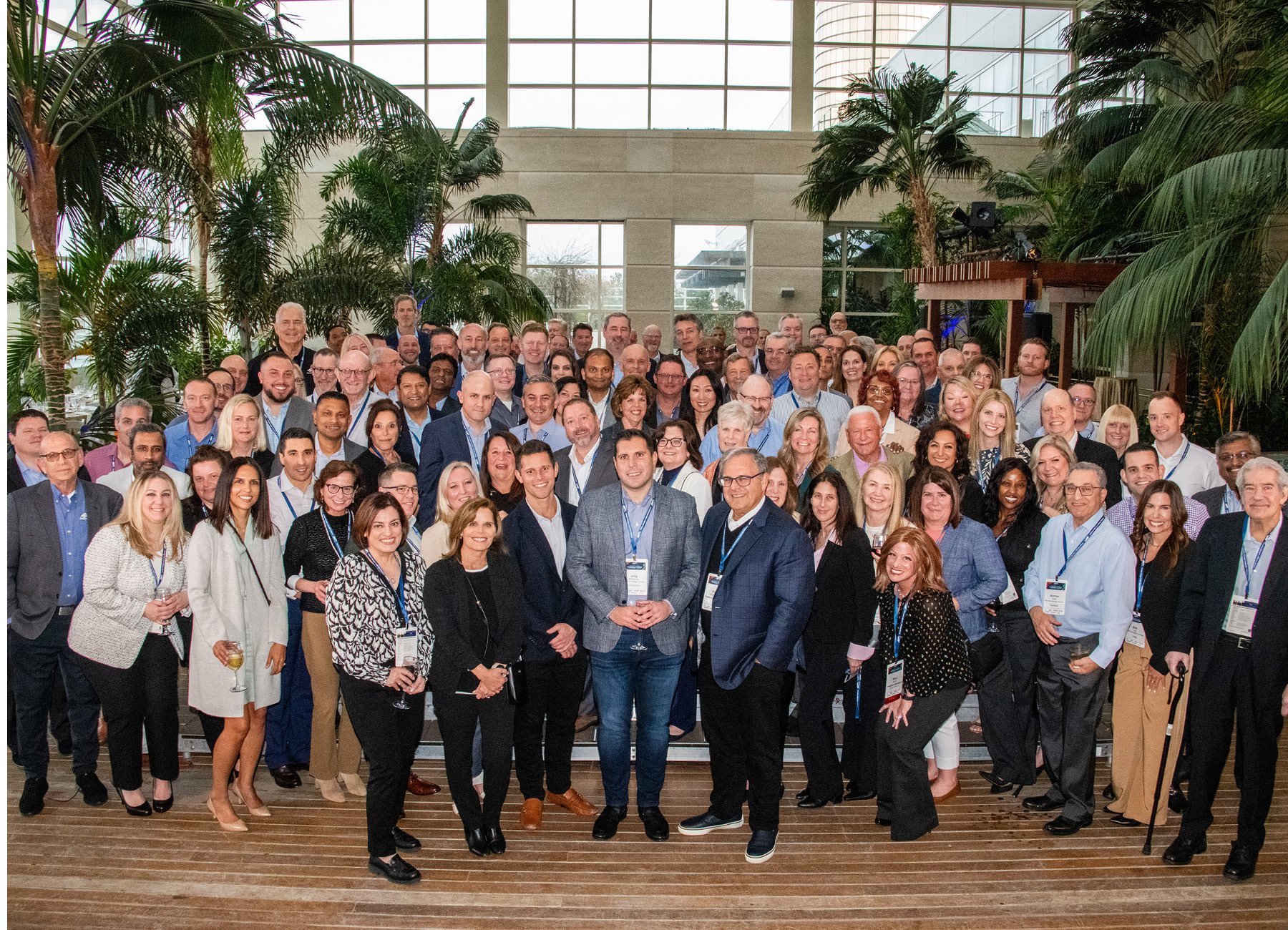
Middleman with many of Freedom Mortgage's senior leaders

As he looks forward, Middleman knows that Freedom Mortgage is in the best position possible to drive future success – no matter the market conditions.
“We have a robust ecosystem here where each part of what we do supports the other parts,” he explains. “It’s built to support changes in the environment in which we live, and that’s really important.
“We’ve seen other companies build large ecosystems that were highly fragile and small changes in the environment caused tremendous harm to their organizations.
“We feel like we’re taking definitive steps to make sure that we are not fragile and that we can be successful in virtually every economic environment.”

